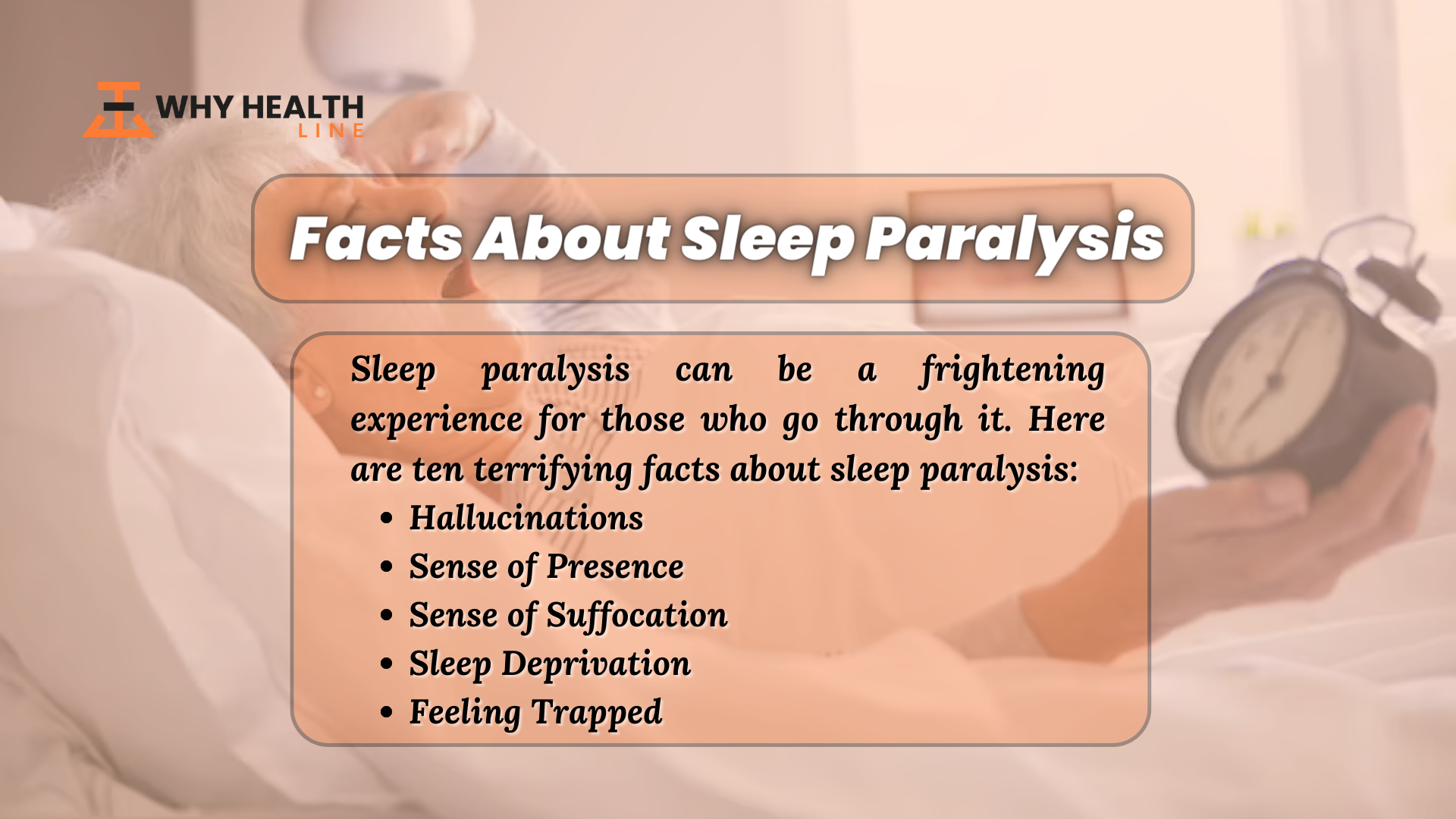
Sleep paralysis is a state of temporary inability in which a person is conscious or aware of his surroundings, but his body can’t move. In this condition, an individual is also unable to speak and may feel pressure on his chest. It usually occurs during REM sleep, a state in which people are between wakefulness and sleep.
Simply put, during an episode of sleep paralysis, a person’s body and mind get out of sync. Sleep paralysis is not life-threatening, but it can be a reason to cause issues like anxiety and sleep disorders.
After an episode of sleep paralysis, people also fear falling back asleep. Their heart rate increases, or they may feel emotionally overwhelmed or absolutely exhausted.
However, sleep paralysis is not an alarming condition and does not exert any severity on your health. Still, it’s important to be aware of its triggers and preventive measures so you can lower your risk. Keep reading to learn how.
What is Sleep Paralysis?
Sleep paralysis is a phenomenon in which a temporary loss of muscle function occurs when an individual is asleep. Usually, it’s a harmless condition, and most people only get it once or twice in their whole lives.
Symptoms of Sleep Paralysis
The core symptom of sleep paralysis is being unable to move the body while being in a state of sleep and wakefulness. However, during these episodes, people are likely to have other experiences as well, including:
- Paralysis in the limbs.
- Inability to speak.
- Sense of suffocation.
- Hallucinations.
- Fear.
- Panic.
- Helplessness.
- Tightening around the throat.
Causes of Sleep Paralysis
The major reason behind the occurrence of sleep paralysis is a disrupted sleep schedule. But this phenomenon might take place due to a combination of factors:
- Insomnia.
- Disturbed circadian rhythms.
- Narcolepsy.
- Post-traumatic stress disorder (PTSD).
- Generalized anxiety disorder.
- Panic disorder.
- A family history of sleep paralysis.
How Is Sleep Paralysis Diagnosed?
Generally, there are no medical tests to diagnose sleep paralysis. If you experience an episode, your healthcare professional may simply ask you about your medical history or sleeping patterns. But in extreme cases, doctors may order a sleep test (multiple sleep latency test) to thoroughly assess any other concerns.
This test measures how fast an individual falls asleep and what kind of sleep he experiences during his nap time. This test also helps diagnose issues like narcolepsy, which is considered the main cause of sleep paralysis.

Treatment of Sleep Paralysis
There’s typically no cure for sleep paralysis. And the treatment methods only involve managing the risk factors that could possibly trigger this state. Moreover, sleep paralysis is not a recurring condition, and most people usually experience it only once in their lives.
Here are some steps that will definitely help you improve your quality of sleep and minimize the risk of this condition:
- Follow a proper and consistent sleep schedule.
- Set a pre-bedtime routine.
- Minimize the intrusion of light and noise in your bedroom before going to sleep.
- Reduce the consumption of caffeinated drinks and alcohol, particularly in the evening.
- Get rid of every electronic device at least a half-hour before your bedtime.
If your sleep paralysis is because of any underlying medical condition, then your doctor may prescribe certain drugs to help manage the symptoms and underlying cause.
If sleep paralysis occurs due to narcolepsy, then the most commonly prescribed medications are selective serotonin reuptake inhibitors, such as fluoxetine. These stimulants help a person stay alert and awake during most part of his day.
How Can I Prevent Sleep Paralysis?
There are no proven therapies to minimize the likelihood of sleep paralysis episodes. But people who experience it frequently should focus on small body movements in order to recover quickly. Other than that, also try to follow a few preventive measures:
- Try to get at least 7 to 9 hours of peaceful and quality sleep daily.
- Make sure to go to sleep and wake up nearly at the same time each day.
- Get regular exercise.
Key Takeaway
Sleep paralysis is quite a common phenomenon and does not cause any severe harm to your overall health. But sometimes, it can be unsettling and terrifying for some people.
If this condition has become a reason for distress or is constantly affecting your quality of sleep, then you need to consult your doctor.
FAQs:
Does Sleep Paralysis Hurt?
Sleep paralysis is pretty common and doesn’t cause any physical harm, but it can be scary. It has also been reported that a person experiencing sleep paralysis may feel a sudden pain in his head and chest.
Can You Talk During Sleep Paralysis?
During an episode of sleep paralysis, you may feel awake but unable to talk, move, or open your eyes. You might also feel a harmful presence in your bedroom that is pressing you down, but you can’t even scream. This experience can be quite terrifying but typically ends within a minute or two.
Why Do People Get Sleep Paralysis?
Usually, there are a number of reasons that contribute to the occurrence of this sleep state. That can either be insomnia, disrupted sleeping patterns, narcolepsy, or post-traumatic stress disorder (PTSD).